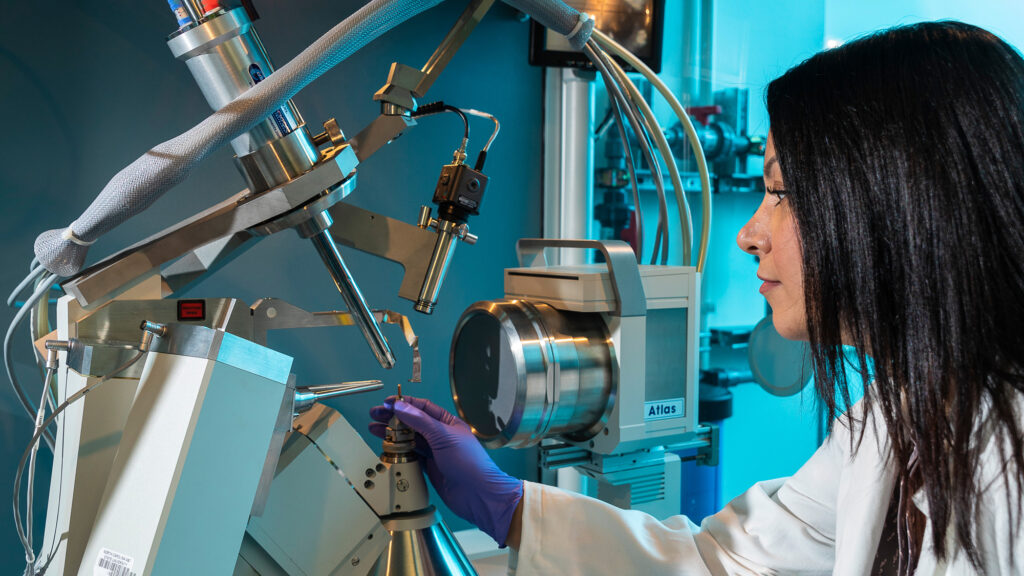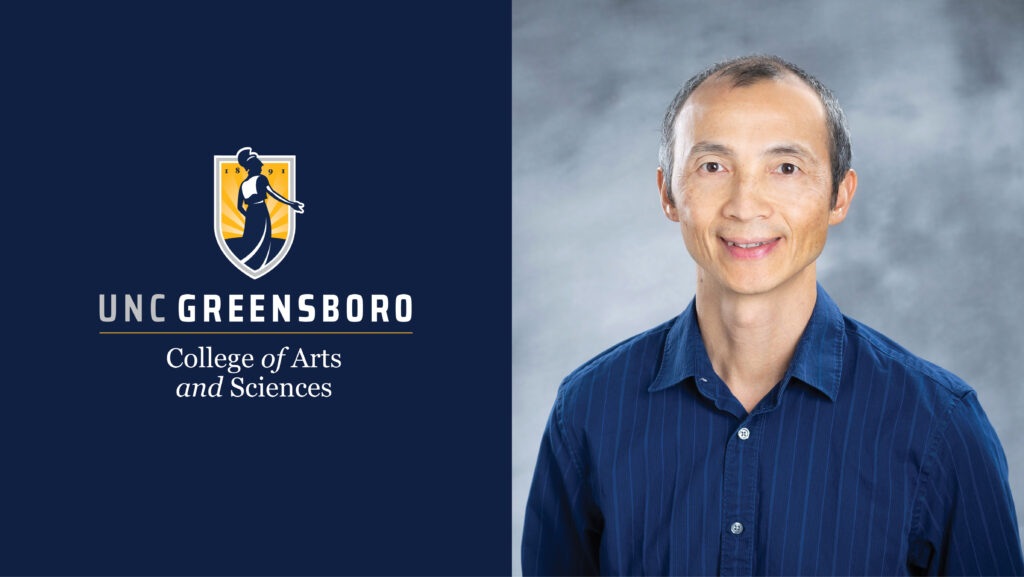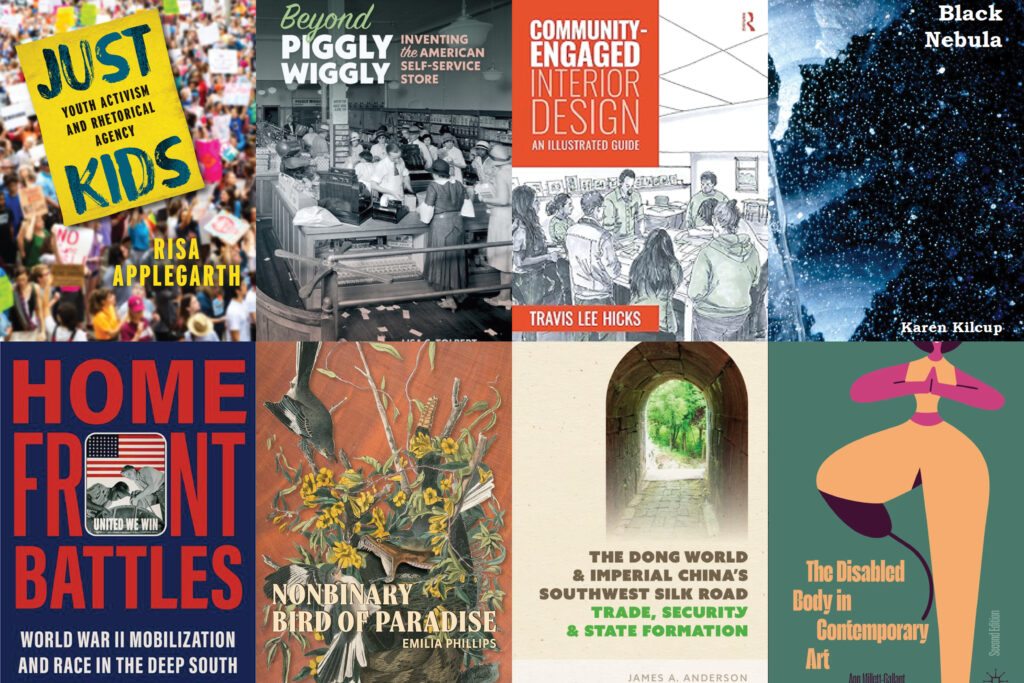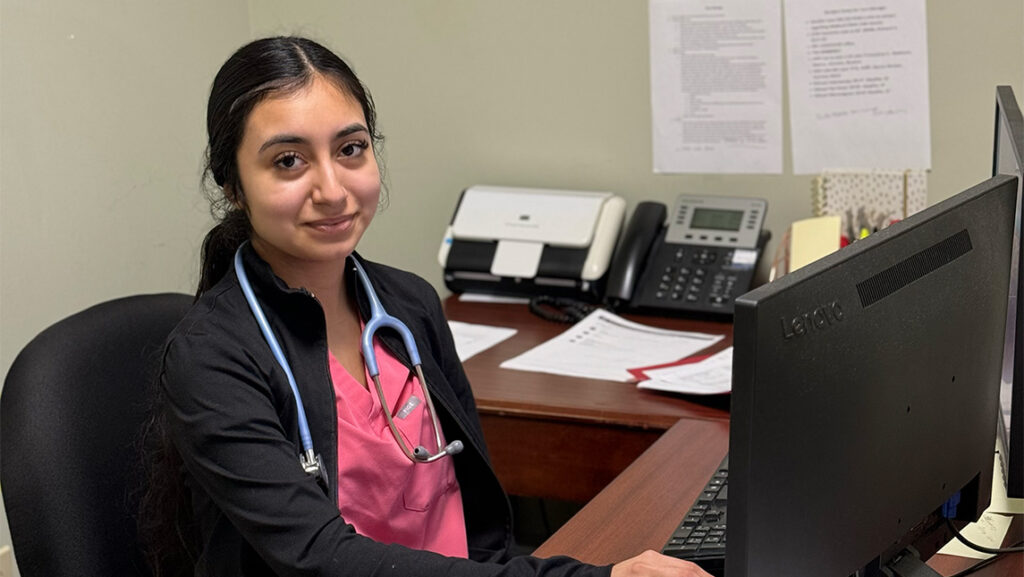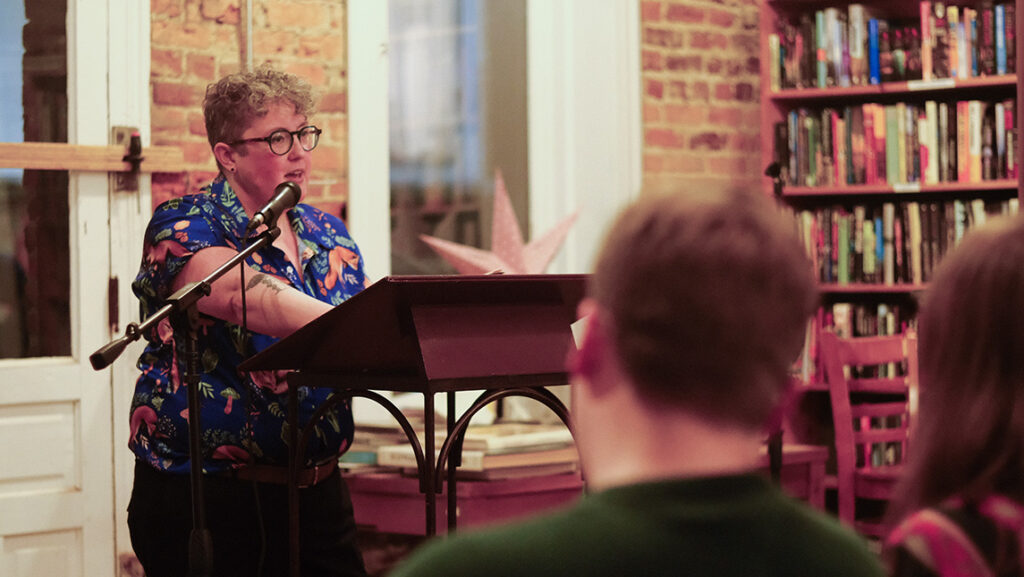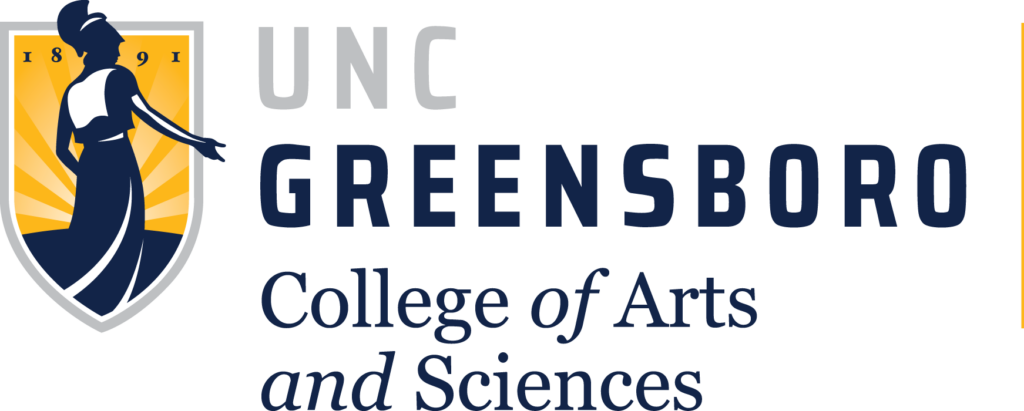Last fall, the College of Arts & Sciences Office of Research supported several undergraduate students with grants from the Dorothy Levis Munroe Undergraduate Research Fund. Munroe, who graduated as a chemistry major from UNCG in 1944, was a high school teacher and became the first woman to serve on the board of education in Newark, Delaware. In her later years, Munroe endowed a fund at UNCG to help students pursue the sciences by providing resources for research.
Zoe Edmonson, a biology major from Jamestown, NC, worked in Dr. Maia Popova’s lab to study instructional practices related to teaching the concept of symmetry in inorganic chemistry courses. Before the semester ended, we spoke with Zoe about her research experience.
Tell us about your research project.
Zoe: The project is part of a study being conducted by the Popova research lab. We are looking at how college instructors teach the concept of symmetry in inorganic chemistry courses. Specifically, we are looking at the instructor’s personal pedagogical content knowledge – what they know about teaching – and at their enacted pedagogical content knowledge – how they use what they know about teaching in their classroom. We are also looking at how those factors influence student outcomes.
Our team at UNCG is focused on the instructor side, and another team at the University of Wisconsin Madison is focused on the student learning part.
What is symmetry? Why are you focusing on that?
Zoe: Symmetry is a fundamental concept in chemistry that can predict or explain a substance’s properties and interactions. It’s complicated but very important. We are focusing on symmetry in inorganic chemistry because it’s just a very difficult topic for students to learn, and it can be difficult to teach. A lot of the professors we interviewed felt like the way it was taught by their professors was not especially helpful, and so they are trying to change their methods.
How did you get involved in this project?
Zoe: I took Dr. [Maia] Popova’s Organic Chemistry I class. After the semester ended, she sent an email to several students asking if we would be interested in joining the project. I really liked Dr. Poposa, I loved her chemistry class, and I thought it would be good to work with her, so I responded. She and a few of her graduate students interviewed me. I didn’t think I’d get accepted but I did.
What made you think you wouldn’t get the position?
Zoe: I felt like research was too… advanced and that I wasn’t qualified. I realize now it’s definitely not as scary as I thought it was. It’s not that it’s easy, it’s just… you don’t have to know everything about everything to join a research group.
What was it about Dr. Popova or her class that made you want to work with her?
Zoe: When I was in high school, I was not very good at chemistry. But I am pre-med, so I knew I would have to take organic chemistry. I was just hoping I could get a C.
Dr. Popova does a flipped classroom approach. She gave us material to learn before class and then when we came to class, we reviewed it and focused on more difficult concepts. I’d never taken a flipped class like this before, but I ended up being one of the best performing students in the class. Dr. Popova really seemed to care about us and about making sure we understood the material.
So, what was your role on the project, and how did you spend your Munroe funding?
Zoe: This is a qualitative research project and it’s still in the beginning stages. I helped transcribe interviews with chemistry instructors. I also helped to code course materials, including syllabi. I have just started helping to code the interview transcripts.
I used the Munroe funding to purchase a few cameras that we will use to video classroom teaching, and I used it to attend the spring meeting of the American Chemistry Society in Indianapolis. I attended sessions that focused on chemistry education, and I also presented an undergraduate research poster. It was a lot of fun.
Overall, what did you learn from your research experience?
Zoe: I’ve learned a lot about what it means to work as a team. It’s different from working with classmates on a group project. We are not just doing the activity to check it off the list. With research, we genuinely want to make a change – to help instructors and students and to progress chemistry education further. It’s giving me a glimpse into the future.
Before we let you go, what do you like best about UNCG?
Zoe: Hmm. I guess my favorite thing about UNCG is all the people – all the relationships I’ve formed. I didn’t realize how many friends I would make inside the classroom, and how much I would relate to other students. And also my advisor, Dr. Maxwell. I love her. If I didn’t have her, I’d have no idea what the heck I’m doing now.
(Photo courtesy of Zoe Edmonson. Zoe presented her research at an undergrad poster session at the American Chemical Society spring conference.)

